Toxic political leadership refers to a behavior exhibited by individuals in positions of power characterized by self-interest, manipulation, and a disregard for ethical norms and constituents’ well-being.
These leaders often display traits such as narcissism, authoritarianism, and lack of empathy. Their actions can have far-reaching and detrimental consequences for society, undermining democratic values, eroding public trust, and fostering division.
Historical Examples:
History provides numerous examples of toxic political leaders whose actions have devastated their nations and the world.
From Adolf Hitler in Nazi Germany, whose racist and fascist ideology led to the Holocaust and World War II, to Idi Amin in Uganda, whose brutal dictatorship caused the deaths of tens of thousands of people, these leaders exemplify the destructive potential of toxic leadership.
Joseph Stalin, the founder of the Soviet Union, was a brutal dictator who imposed authoritarian rule, leading to mass executions and forced labor camps.
Benito Mussolini, the founder of fascism, established a dictatorial regime characterized by extreme nationalism, militarism, and suppression of individual freedoms.
Pol Pot, the Khmer Rouge regime, led to the systematic destruction of Cambodia’s social fabric, economy, and intellectual class.
Human rights atrocities, including chemical weapons, ethnic suppression, and the invasion of Kuwait, marked Saddam Hussein’s dictatorship.
Robert Mugabe’s tenure as Zimbabwe’s President was marked by economic mismanagement, political repression, and human rights abuses.
Extreme corruption, human rights violations, and the systematic elimination of political opponents marked Rafael Trujillo’s dictatorship.
The Duvalier dynasty in Haiti was characterized by brutal repression, corruption, and human rights violations.
These examples illustrate the profound consequences that toxic political leaders may inflict on their country and the global community.
The legacies of these regimes serve as cautionary tales, emphasizing the significance of vigilance and responsibility and advocating for preserving democratic principles and institutions to prevent the emergence of similar toxic regimes.
Causes of Toxic Political Leadership:
Power Hunger and Corruption
One of the primary drivers of toxic political leadership is an insatiable hunger for power and a willingness to engage in corrupt practices to secure and maintain that power. It starts from a mix of unchecked power and deep insecurities.
These leaders often view their positions as accumulating wealth, influence, and control rather than a responsibility to serve the public interest.
They may use their authority to enrich themselves, their families, and their inner circles while disregarding the broader population’s needs.
Narcissism and Lack of Empathy
Politicians who exhibit toxic behavior generally have traits commonly associated with narcissistic personality disorder. Such as an inflated sense of self-importance, a lack of empathy towards others, and a firm conviction that they are entitled to special privileges.
Some even have a conviction and assert that they have been chosen by divine intervention.
They may believe they are above the law and that rules and norms do not apply to them. This absence of empathy can result in a disdain for the welfare of their people and a readiness to exploit and manipulate others for personal benefit.
Divisive Rhetoric and Populism
Many toxic political leaders employ divisive rhetoric and populist tactics to gain and maintain power. They may scapegoat minority groups, demonize political opponents, and oversimplify complex issues to appeal to the emotions and fears of their supporters.
This divisive approach can exacerbate societal tensions, foster an “us vs. them” mentality, and ultimately undermine social cohesion and democratic institutions.
Weak Institutions and Lack of Checks and Balances
The absence of solid democratic institutions, an independent judiciary, and adequate checks and balances on executive power can create an environment conducive to the emergence of toxic leadership.
Insufficient safeguards and oversight mechanisms make it easier for leaders to consolidate power, engage in unethical practices, and evade accountability.
Socio-Economic Instability and Upheaval
Periods of economic turmoil, social unrest, or political upheaval can create fertile ground for the rise of toxic leaders.
During times of crisis or uncertainty, some individuals may be drawn to strongmen who promise to restore order and stability, even if their methods and motivations are questionable.
Legacy of Authoritarian Rule
In countries with a history of authoritarian regimes, the remnants of these systems and the cultural acceptance of autocratic leadership can make it easier for toxic leaders to emerge and gain a foothold.
Entrenched power structures and lacking democratic traditions can perpetuate toxic leadership patterns.
Cult of Personality
Some politically toxic leaders actively cultivate a cult of personality, portraying them as infallible, all-powerful, and indispensable to the nation’s well-being.
This can be achieved through propaganda, manipulation of the media, and the suppression of dissenting voices, creating an environment where citizens are discouraged from questioning or challenging the leader’s authority.
These leaders use government-funded social media influencers to employ strategic content-posting techniques to foster favorable self-perception by the people.
External Influences and Interference
In some cases, toxic leadership may be enabled or supported by external forces, such as foreign governments or powerful interest groups, who benefit from a particular nation’s instability or exploitation.
These external actors may provide financial, military, or political backing to toxic leaders, complicating efforts to address the problem from within.
Inadequate Education and Critical Thinking Skills
A lack of widespread access to quality education and the cultivation of critical thinking skills can make a population more susceptible to the rhetoric and propaganda employed by toxic leaders.
When citizens lack the tools to analyze information and challenge authority critically, it becomes easier for toxic leaders to spread misinformation and manipulate public opinion.
Cultural and Historical Factors
Certain cultural or historical factors, such as deeply ingrained societal hierarchies, traditions of deference to authority, or previous experiences with authoritarian governments, can contribute to an atmosphere that is more likely to nurture the growth and maintenance of toxic leadership.
The psychological and societal factors that create toxic political leadership.
Toxic political leaders often emerge due to personality traits such as narcissism, Machiavellianism, and a predisposition towards authoritarianism.
These individuals possess an inflated sense of self-importance, lack empathy, and a strong desire for power and admiration. They are driven by deep-seated insecurities and a compensatory need to assert control and dominance over others.
Their charismatic personality can be highly persuasive and appealing to specific segments of the population, especially during times of uncertainty or crisis.
Socio-politically, toxic leaders are often linked to periods of economic downturns, social upheaval, or collective feelings of disenfranchisement and insecurity.
These leaders exploit existing divisions, employing divisive rhetoric to polarize and consolidate their support base.
The lack of robust democratic institutions, adequate checks and balances, and a free press can further enable such leaders to rise to power and maintain their grip on authority by suppressing dissent and manipulating public opinion.
Cultural factors also play a significant role in toxic leadership. Societies with a historical legacy of authoritarianism or high-power distance cultural norms may discourage critical thinking and dissent, creating a fertile ground for toxic leaders to exploit these norms.
Cultivating a political and organizational culture that prioritizes empathy, ethical behavior, and inclusive leadership is necessary to prevent the emergence of toxic leaders. A lack of accountability also significantly contributes to nurturing toxicity among leaders.
Additionally, it is vital to reinforce institutions that can prevent the concentration of power in the hands of a single person or group and to encourage education and critical thinking among the general population.
The various manifestations and exhibited facts of toxic political leadership:
Toxic political leadership is characterized by deception, propaganda, religious manipulation, ethnic division, misuse of national resources, and the suppression of free speech.
These leaders lie to their people, cheat them with false hope and empty achievements, exploit religious differences to foster hatred and use ethnic division to create polarization among different ethnic groups.
Toxic Political leaders exhibit a political modus operandi characterized by deceit, self-interest, and lack of substantial strategic benefit for the nation.
They divert public funds and resources to finance lavish lifestyles, reward loyalists, and consolidate personal power.
Among numerous toxic political leaders, a prevalent trait is the construction of opulent mansions and palaces for personal gratification while misallocating the national budget towards non-essential expenditures that do not impact their people’s economies.
Toxic leaders often imprison the free press, viewing it as a threat and seeking to suppress it through censorship, intimidation, and even imprisonment of journalists and dissidents who voice opposing views or criticisms.
They often discuss the notion of fair and free elections while simultaneously repressing dissenting parties and ignoring the principle of freedom of speech.
They also use the legal system systematically to suppress different opinions and opposition groups, using tactics such as selective prosecution, arbitrary arrests, and unjust legal proceedings to eliminate dissent and maintain control.
They may engage in violent military adventurism with their people due to a desire for personal glory, an inability to reconcile political issues via negotiation, or a warped sense of nationalism. They establish a system based on punitive and fear-based relationships.
These belligerent actions, carried out under the pretext of preserving national unity but in truth to protect their position of power, have the potential to result in expensive and devastating conflicts.
Toxic leaders may use and exploit the nationalist feelings of the people in speeches, advancing narrow ethnic group interests at the expense of others. They may invoke nationalist rhetoric and sentiments to rally support, while their actions promote a select group’s interests at the expense of others.
Toxic leaders may organize clandestine hit groups to kill and torture opposition group members that override the rule of law and make people unsafe.
In the most extreme cases, they may employ extrajudicial violence and terror tactics against perceived enemies and dissidents, creating secret police forces or death squads that operate outside the bounds of the law.
Toxic leaders may pursue confrontational and aggressive foreign policies to divert attention from domestic issues or bolster their image as strong and decisive leaders. This can lead to strained relations with neighboring countries, heightened tensions, and even the risk of armed conflict, which can have devastating consequences for the nation and its people.
Toxic leaders may resort to war to resolve domestic political differences and even wag war left and right and devastate infrastructures. This can destroy infrastructure, cause loss of civilian lives, and cause long-lasting trauma for affected communities, all in service of maintaining the leader’s grip on power.
These points highlight the dangerous and destructive manifestations of toxic political leadership, which can undermine democratic principles, human rights, and the well-being of entire nations.
Consequences of Toxic Political Leadership
Erosion of Public Trust
Toxic political leadership can profoundly impact public trust in government and democratic institutions. When leaders consistently prioritize personal gain over the public good, engage in unethical or illegal behavior, and disregard the rule of law, citizens may become disillusioned and cynical about the political process.
This erosion of trust can lead to decreased civic engagement, voter apathy, and weakening of the social contract that underpins a healthy democracy.
Polarization and Social Unrest
Divisive rhetoric and populist tactics employed by toxic political leaders can exacerbate societal divisions and tensions, leading to polarization and social unrest.
By pitting different groups against one another and stoking fears and resentments, these leaders can create an environment ripe for conflict and even violence. This can destabilize communities, undermine social cohesion, and challenge the maintenance of law and order.
Economic and Social Regression
Toxic political leadership can also harm a nation’s economic and social development.
Leaders prioritizing personal gain over sound policy and good governance may mismanage resources, engage in unsustainable practices, and implement policies that exclusively favor a small part of the elite population.
This can lead to economic stagnation, widening inequality, and a deterioration of social services and infrastructure, ultimately hindering progress and development.
Human Rights Violations and Oppression
Toxic political leaders often resort to oppressive tactics and human rights violations to maintain their grip on power.
This can include arbitrary arrests, torture, extrajudicial killings, and the suppression of fundamental freedoms such as freedom of speech, assembly, and the press.
Such actions create an atmosphere of fear, erode civil liberties, and undermine the rule of law.
Brain Drain and Economic Stagnation
Toxic leadership can lead to a brain drain as skilled professionals, intellectuals, and entrepreneurs flee the country to escape oppression, instability, or lack of opportunities.
This deprives the nation of valuable human capital, hindering economic growth and development. Additionally, toxic leaders’ mismanagement of resources, corruption, and poor policymaking can lead to economic stagnation, hampering progress and exacerbating poverty.
Regional Instability and Conflicts
The aggressive and confrontational foreign policies often pursued by toxic leaders can contribute to regional instability and conflicts. Their actions may involve territorial disputes, support for proxy groups, or attempts to assert dominance over neighboring countries.
This can lead to arms races, military tensions, and even open warfare, with devastating humanitarian and economic consequences for the region.
Environmental Degradation
In pursuing power and personal gain, toxic leaders may neglect or actively contribute to environmental degradation.
This can involve exploiting natural resources without regard for sustainability, lax enforcement of environmental regulations, or prioritizing short-term economic gains over long-term ecological preservation.
Generational Trauma and Societal Divisions
The violence, oppression, and divisive tactics employed by toxic leaders can have far-reaching psychological and societal consequences, leading to generational trauma and deep-rooted societal divisions.
These wounds can remain long after the toxic leader has stepped down from power, impeding efforts to promote national healing and reconciliation.
The intentional killings of civilians, the use of sexual abuse as a military strategy, the burning and dismantling of faith-based institutions, and the deprivation of critical products to the people through the closing of roads, etc., are all examples of these types of atrocities.
Weakening of Global Norms and Institutions
Toxic political leadership can also have implications beyond the borders of a single nation. By flouting international norms, treaties, and institutions, toxic leaders can undermine the global system of governance and cooperation.
This can weaken the international community’s ability to address pressing issues such as climate change, pandemics, and human rights violations.
These consequences further illustrate toxic political leadership’s wide-ranging and severe impacts on a nation, its people, and the broader global community.
Addressing and preventing toxic leadership is a domestic concern and an international imperative for promoting peace, stability, and sustainable development.
Combating Toxic Political Leadership
Strengthening Democratic Institutions
Combating toxic political leadership requires a multifaceted approach, and one of the critical strategies involves strengthening democratic institutions and checks and balances. This includes:
• Ensuring the independence and impartiality of the judicial system
• Promoting transparency and accountability mechanisms
• Empowering independent media and civil society organizations
• Protecting freedom of speech and the right to dissent
By reinforcing these democratic safeguards, it becomes more difficult for toxic leaders to consolidate power and engage in unethical or illegal behavior without facing consequences.
Political Education and Civic Engagement
Fostering an informed and engaged citizenry is crucial in preventing the rise of toxic political leadership. This can be achieved through:
• Improving political education and media literacy programs
• Encouraging critical thinking and fact-checking
• Promoting active participation in electoral processes
• Cultivating a culture of civic responsibility and democratic values
When citizens have the knowledge and skills to identify and reject toxic leadership traits and participate actively in the political process, it becomes more challenging for toxic leaders to gain and maintain power.
Leadership Accountability and Ethical Standards
Establishing and enforcing clear ethical standards and accountability measures for political leaders is another important strategy in combating toxic leadership. This can involve:
• Developing and implementing robust codes of conduct
• Ensuring effective oversight and monitoring mechanisms
• Imposing meaningful consequences for misconduct, such as removal from office or criminal prosecution
• Promoting a culture of integrity and ethical leadership
Holding political leaders to high ethical standards and ensuring accountability makes it more difficult for toxic leaders to engage in unethical or illegal behavior without facing the consequences.
Long-term Strategies to Mitigate Toxic Political Leadership:
One critical long-term strategy involves strengthening the fabric of democratic institutions to ensure that checks and balances are robust and can effectively limit the concentration of power in the hands of any single leader or group.
This includes enhancing the independence of the judiciary, ensuring the integrity of electoral processes, and promoting a pluralistic media landscape that can hold leaders accountable.
Education plays a pivotal role in this effort, as fostering critical thinking and civic education from an early age can empower citizens to actively participate in their democracy and be more discerning of leadership qualities.
In addition, the promotion and implementation of transparency and accountability systems in governmental and organizational structures. This might discourage potential toxic leaders by heightening the risks and repercussions of unethical conduct.
Cultivating a political culture that values ethical leadership and public service, reinforced by social norms and legal frameworks that penalize corruption and abuse of power, can gradually diminish the allure of toxic leadership tactics.
Role of Technology and Global Cooperation:
Technology offers powerful tools for enhancing transparency, accountability, and civic engagement, which is essential for combating toxic leadership.
Social media and digital platforms can amplify voices of dissent, facilitate grassroots movements, and foster a more informed and engaged citizenry.
However, toxic leaders can also use these tools to spread misinformation and polarize societies. Therefore, developing ethical guidelines and regulatory frameworks for digital platforms is essential to harnessing their positive potential while mitigating risks.
Global cooperation is crucial in addressing the cross-border influences that can enable or challenge toxic leadership. Through diplomatic efforts and sanctions, international organizations can exert pressure on regimes that violate human rights or undermine democratic principles.
Furthermore, global networks of civil society organizations can support grassroots movements fighting against toxic leadership in their countries, sharing best practices, resources, and international solidarity.
In conclusion, combating toxic leadership requires a multifaceted and proactive approach that includes strengthening democratic institutions, promoting ethical norms, leveraging technology for positive change, and fostering global cooperation.
By addressing the root causes and enabling factors of toxic leadership, societies can build resilience against such threats and pave the way for more ethical, inclusive, and effective leadership.
This endeavor is a matter of domestic policy and a global imperative for ensuring peace, stability, and prosperity in the 21st century.
A comparative analysis between toxic and effective leadership styles
| Aspect | Toxic Leadership | Effective Leadership |
|---|---|---|
| Definition | Leadership that is harmful or destructive to the organization or its people. | Leadership that positively influences and motivates employees to accomplish organizational goals. |
| Key Traits | Narcissism, authoritarianism, lack of empathy. | Empathy, humility, integrity. |
| Decision Making | Makes decisions based on self-interest without considering the impact on others. | Involves team in the decision-making process, considering diverse perspectives and impacts. |
| Communication | Often uses divisive or manipulative communication; may withhold information. | Open, transparent, and inclusive communication encourages feedback. |
| Conflict Resolution | It avoids accountability, blames others for failures, and may exacerbate conflicts for personal gain. | Seeks to understand root causes of conflict; works towards constructive resolution. |
| Empowerment | Hoards power and information; micromanages, inhibiting growth and initiative of team members. | Delegates authority; encourages autonomy and growth of team members. |
| Organizational Impact | This creates a culture of fear and mistrust, which may lead to high turnover and low morale. | Fosters a positive organizational culture, leading to high engagement and retention. |
| Innovation | Discourages dissenting views; innovation stifled by a need for control. | Encourages creativity and experimentation; values diverse ideas. |
| Ethics | May engage in unethical practices for personal or organizational gain, disregarding the more significant impact. | Adheres to high ethical standards; considers the impact of decisions on all stakeholders. |
| Vision | Often short-term and self-centered, it may lack a clear or sustainable vision for the organization. | Clear, inspiring, and shared vision for the future; aligns team efforts towards common goals. |
| Impact on Followers | Followers may feel undervalued, fearful, and stressed, leading to disengagement and burnout. | Followers feel valued, motivated, and supported, which leads to higher satisfaction and performance. |
The complacency and resignation of ordinary citizens:
The complacency and resignation of ordinary citizens in the face of toxic leadership can have severe consequences.
When individuals become passive observers, choosing to suffer in silence rather than challenge oppressive regimes, they unwittingly enable the further entrenchment of toxic leaders and their destructive policies.
The nation’s institutions and democratic safeguards are eroded as toxic leaders consolidate control and silence dissent. The rule of law becomes a mere formality, and the legal system is weaponized to persecute perceived enemies and protect the ruling elite’s interests.
Without adequate checks on their power, toxic political leaders can plunder the nation’s resources with impunity, diverting public funds to line their pockets or finance lavish lifestyles.
Economic mismanagement, corruption, and short-sighted policies lead to stagnation, while essential services and infrastructure crumble due to neglect and underfunding.
The people’s complacency enables toxic leaders to drive the nation into a downward spiral of oppression, poverty, and instability.
However, the people’s power to resist and demand change can break this cycle. As living conditions deteriorate and fundamental rights are stripped away, the population can unite in a collective voice of hope and determination.
The passive acceptance of toxic political leadership often leads to the downfall of the poisonous leaders and the nation and its people.
This cautionary tale underscores everyone’s crucial role in upholding democratic principles and human rights.
It is a call to action, demanding vigilance, courage, and unwavering commitment to these principles in the face of authoritarianism and oppression.
Exploration of Counterarguments:
Examining the complexity of political leadership and the diverse perspectives on power and governance can enhance the analysis of toxic political leadership. This can reveal why toxic political leadership persists despite its apparent drawbacks, with potential counterarguments and refutations.
| Counterargument | Refutation |
|---|---|
| Necessity of Strong Leadership in Times of Crisis | While strong leadership is crucial in crises, toxic political leadership attributes such as authoritarianism and suppression of dissent often exacerbate rather than resolve crises. Effective crisis management can be achieved through respectful, inclusive decision-making that preserves democratic principles. |
| Cultural Relativism and the Acceptance of Authoritarian Leadership | Cultural relativism cannot justify the universal value of human dignity and rights. Leadership that harms or disregards the welfare of the people leads to adverse outcomes, irrespective of cultural context. The global trend is increasingly towards recognizing the importance of participatory governance. |
| Effectiveness in Achieving Rapid Economic or Social Reforms | Although politically toxic leaders may enact rapid reforms, these often come with significant costs, including eroding democratic institutions and human rights violations. Sustainable development is more achievable in environments where policies undergo public scrutiny and democratic debate. |
| Charismatic Authority and National Unity | Charismatic leadership that becomes toxic can cause more harm by fostering national unity based on suppression of dissent and scapegoating minorities. True unity and pride are built through inclusive and ethical leadership that values diversity and democratic principles. |
These opposing views provide valuable perspectives on why toxic leadership may be supported or accepted. Still, they also emphasize the importance of being vigilant and well-informed citizens and fostering democratic principles and institutions that prevent such leadership.
To effectively address political toxic leadership, one must understand its complexity and adhere to human rights, democracy, and ethical governance.
Conclusion
Toxic political leadership poses significant challenges, but positive change can be achieved through collective action and a commitment to democratic values.
By learning from past examples, implementing effective strategies, and addressing underlying causes, we can create a brighter future where ethical and responsible leadership is the norm.
As we look ahead, it is crucial to remain engaged and committed to this cause, as it is essential for the well-being of societies, environmental preservation, and global cooperation.
We can create a world where people’s interests are prioritized by working towards a shared vision of accountable, transparent, and just leadership.
Addressing toxic political leadership requires citizens to remain vigilant, strengthen democratic institutions, and tackle the root causes.
Collective action, global cooperation, and a commitment to democratic values are essential for creating a future free from toxic leadership.
Citations
1. “The World’s 10 Worst Dictators.” Forbes, April 6, 2006.
2. “Final Report of the Philippine Presidential Commission on Good Government.” Philippine Presidential Commission on Good Government, November 22, 1994.
3. “The EDSA People Power Revolution.” Official Gazette of the Republic of the Philippines accessed March 19, 2024.
4. “The Toxic Effects of Toxic Leadership.” Harvard Business Review, March 7, 2019.
5. “The Consequences of Toxic Leadership.” Center for Creative Leadership accessed March 19, 2024.
6. Human Rights Violations and Oppression
• “World Report 2023: Protecting Human Rights in an Age of Autocracy.” Human Rights Watch accessed March 19, 2024.
• “Patterns of Ill Treatment and Torture Under Authoritarian Regimes.” Amnesty International, September 13, 2021.
7. Brain Drain and Economic Stagnation
• “The Economic Cost of Brain Drain.” World Bank accessed March 19, 2024.
• “Corruption, Mismanagement, and Economic Stagnation: The Legacy of Toxic Leadership.” International Monetary Fund, March 25, 2022.
8. Regional Instability and Conflicts
• “The Geopolitical Consequences of Toxic Leadership.” Council on Foreign Relations, January 2023.
• “Toxic Leadership and Regional Instability: A Case Study of the Middle East.” United Nations University accessed March 19, 2024.
9. Environmental Degradation
• “The Environmental Cost of Toxic Leadership.” United Nations Environment Program, December 2022.
• “Toxic Leadership and Environmental Destruction: A Vicious Cycle.” World Resources Institute, October 2021.
10. Generational Trauma and Societal Divisions
• “The Intergenerational Impact of Toxic Leadership.” American Psychological Association accessed March 19, 2024.
• “Healing the Wounds of Toxic Leadership: Addressing Societal Divisions and Trauma.” United Nations Development Programmed, July 2023.
11. Weakening of Global Norms and Institutions
• “The Erosion of Global Norms: Toxic Leadership and the Undermining of International Cooperation.” International Crisis Group, February 2024.
• “Toxic Leadership and the Future of Global Governance.” Brookings Institution, November 2023.

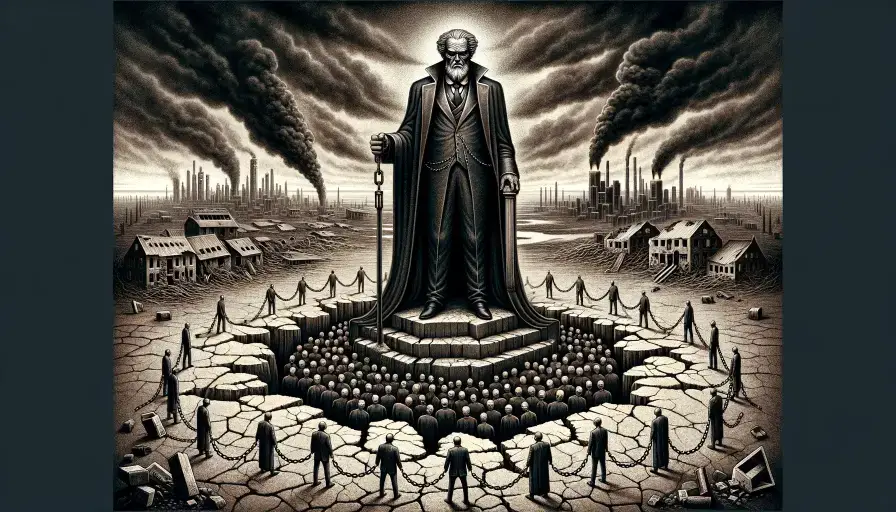




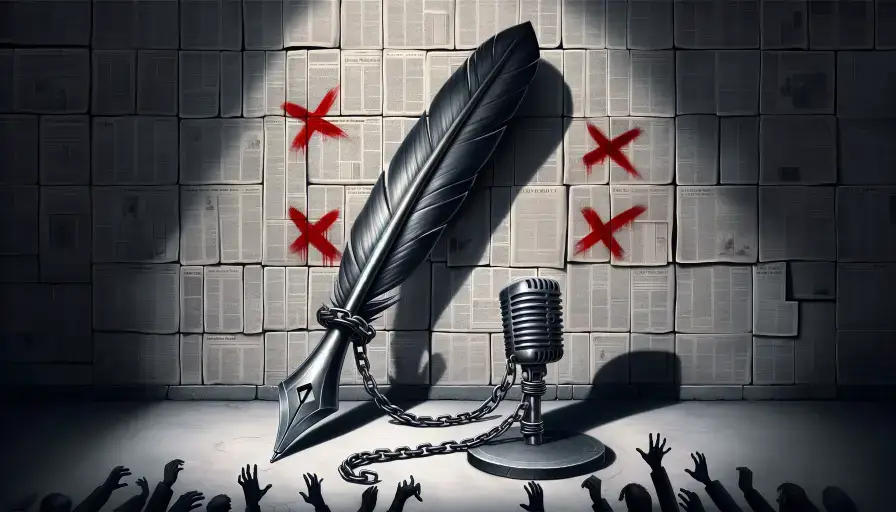

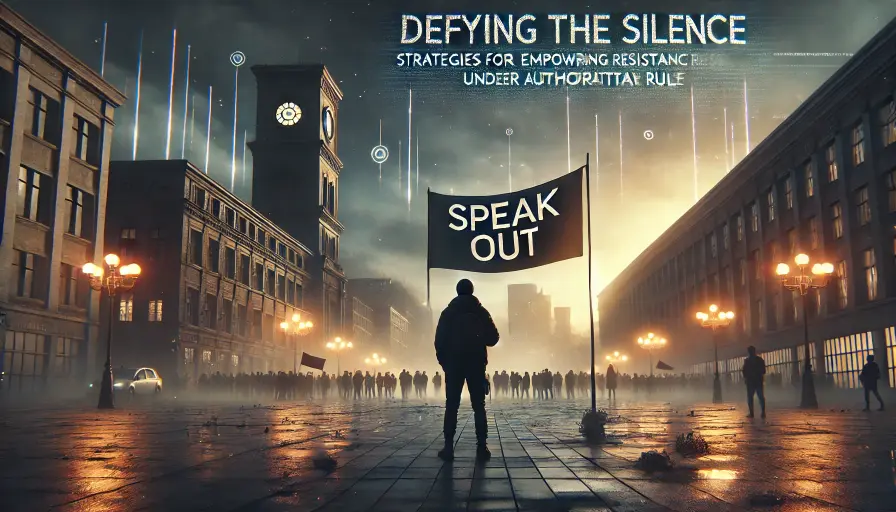
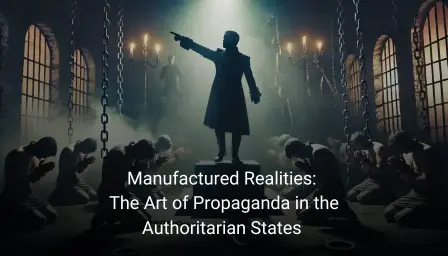

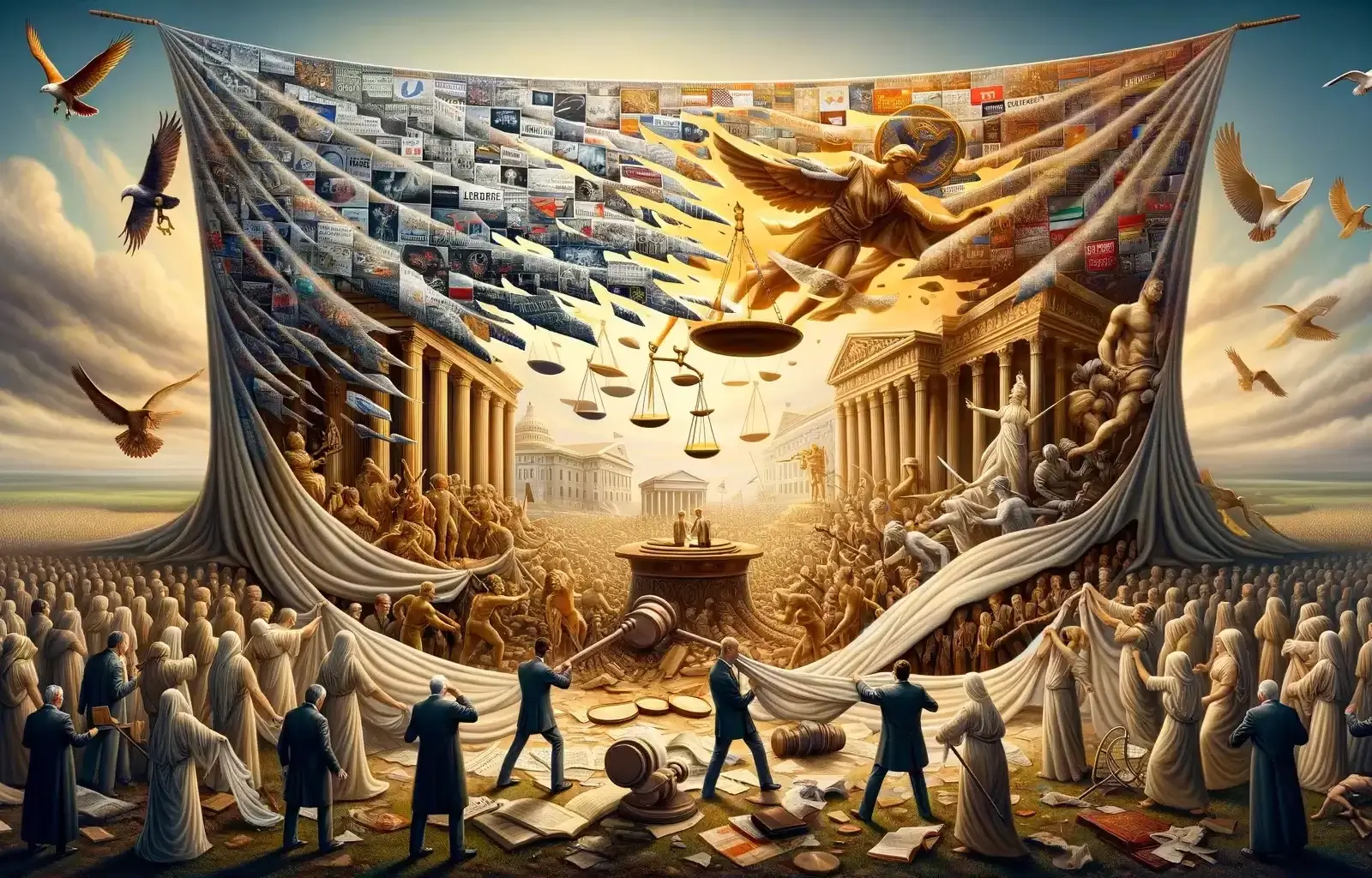
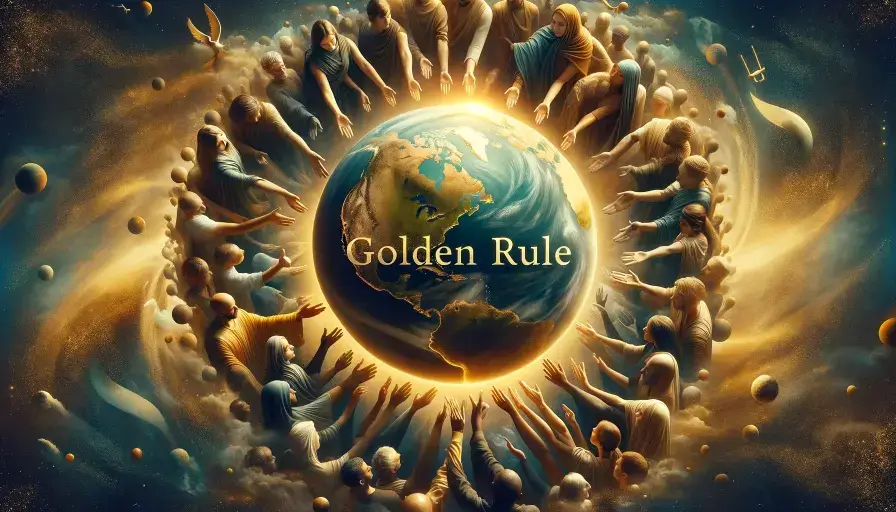
2 Responses
Great article! I really appreciate the clear and detailed insights you’ve provided on this topic. It’s always refreshing to read content that breaks things down so well, making it easy for readers to grasp even complex ideas. I also found the practical tips you’ve shared to be very helpful. Looking forward to more informative posts like this! Keep up the good work!
I found your articles very enlightening; timely & timeless; informative; educational; and easy to read and understand.
I believe the articles, “catch the conscience of the king”, or “ pricks the conscience of the king” the world at large.